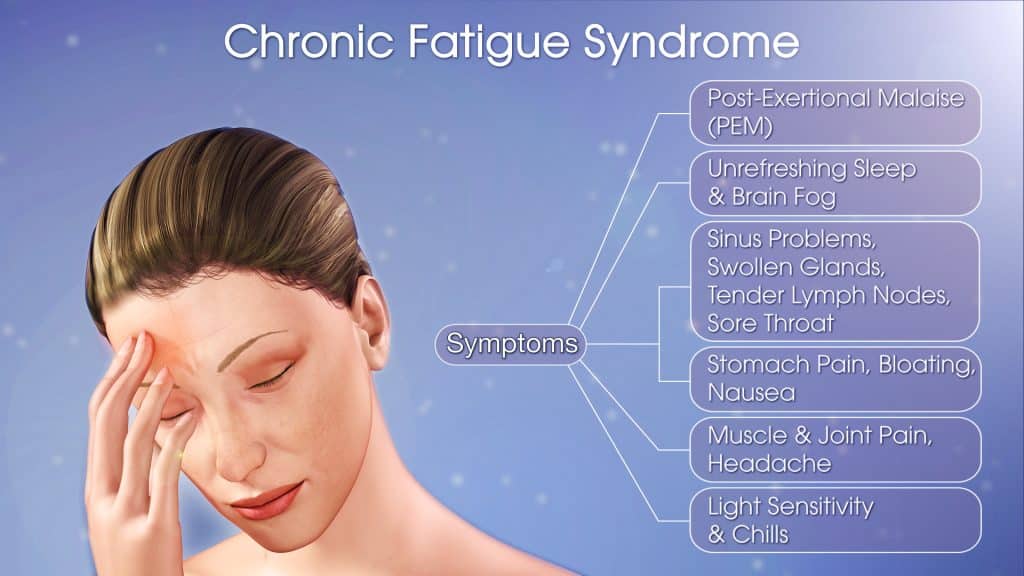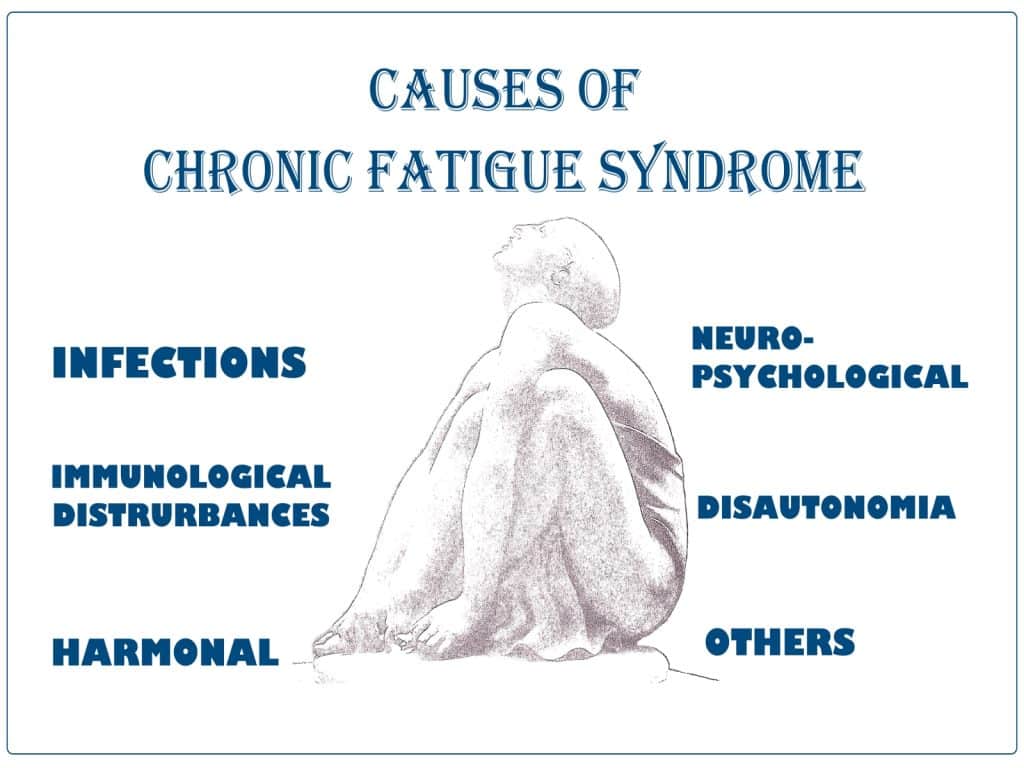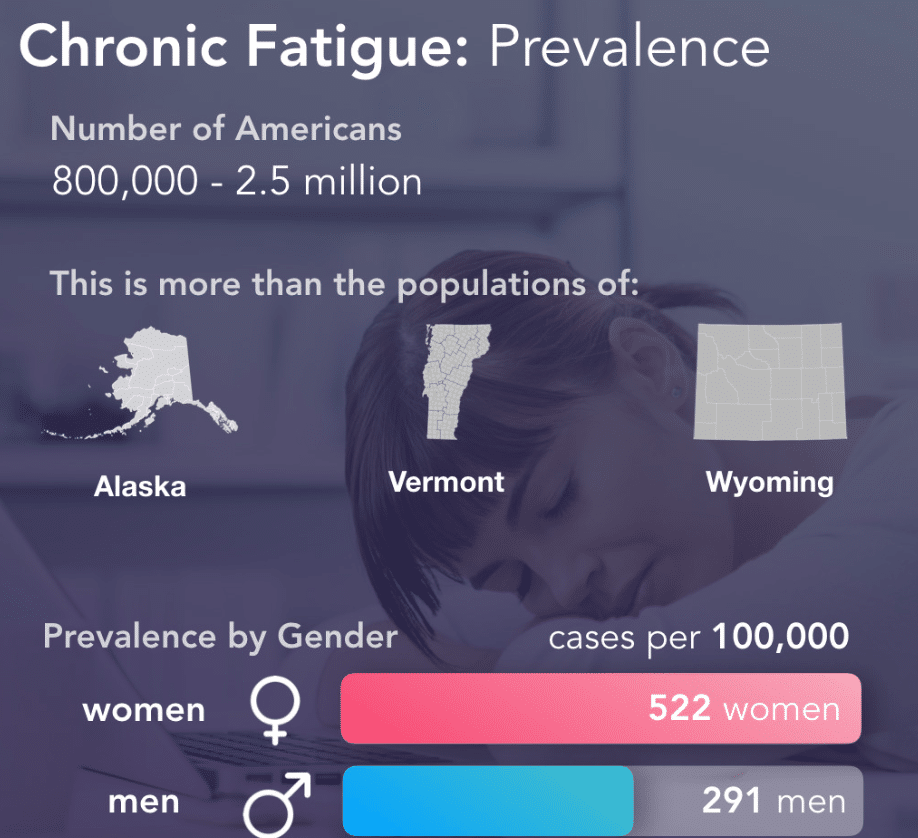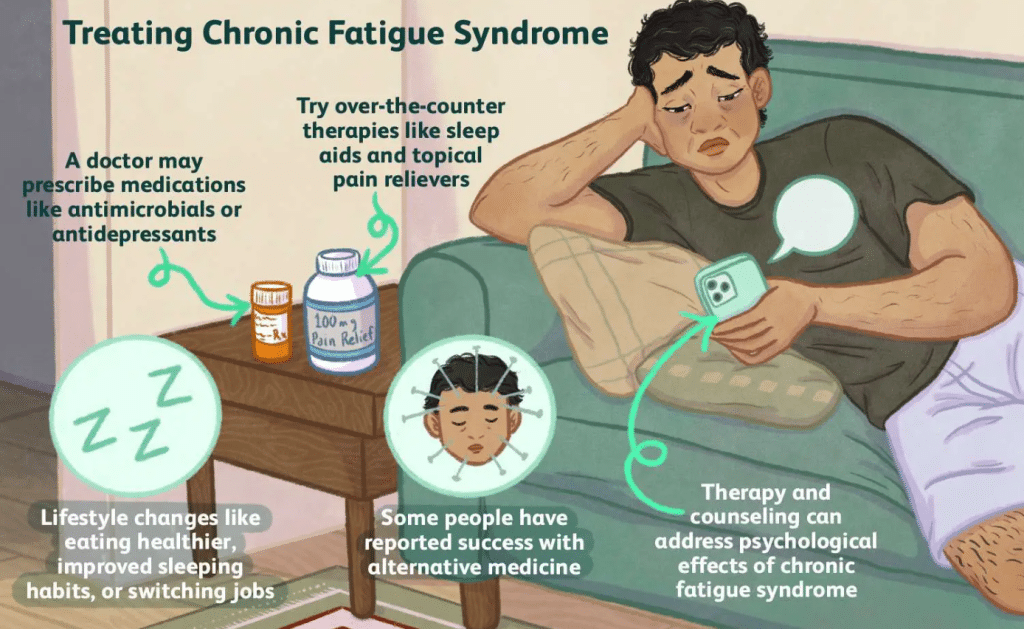In a world obsessed with productivity and constant hustle, many people are experiencing a pervasive sense of exhaustion that goes beyond the usual tiredness. The relentless pace of modern life has intensified the challenges of dealing with chronic fatigue, a medical condition that hampers the physical and emotional well-being of millions globally. Understanding this condition is critical, not just for those who suffer from it but for society as a whole. This post provides comprehensive insights; the aim is to demystify this often misunderstood condition and present a multi-faceted view to help readers recognize and manage chronic fatigue effectively.
Contents
What Is Chronic Fatigue?

Chronic fatigue is more than just feeling tired; it’s a debilitating condition characterized by extreme fatigue that doesn’t improve with rest. A proper diagnosis usually involves ruling out other medical conditions and meeting specific criteria, often requiring sustained symptoms for at least six months. Misunderstanding and misdiagnosis are common, making it imperative for anyone experiencing persistent fatigue to consult healthcare professionals for accurate identification and treatment.
Though the medical community has varying opinions on what precisely constitutes chronic fatigue, the consensus is that it is a complex, multi-system disorder. Therefore, a thorough understanding is essential, not just for those who experience it but also for those around them. While general fatigue is common and can usually be remedied with adequate rest and stress management, chronic fatigue persists and significantly impacts one’s quality of life, necessitating targeted treatment plans and lifestyle modifications.
Historical Context Of Chronic Fatigue

Chronic fatigue isn’t a new phenomenon, but its understanding has evolved considerably over time. In the past, it was often dismissed as “nervous exhaustion” or even laziness, leading to a lack of proper research and treatment options. Misconceptions shrouded this condition, relegating it to the fringes of medical discourse. However, advances in medicine and growing public awareness have shifted the paradigm, allowing for more scientific understanding and acceptance of this complex condition.
Today, chronic fatigue is recognized by healthcare professionals as a legitimate medical condition requiring a multi-disciplinary approach to diagnosis and treatment. Various studies have been conducted, leading to more targeted therapies and better support for those affected. The change in perception reflects the broader evolution of medicine and society, demonstrating a more nuanced understanding that accommodates the complexities of human health.
Common Symptoms

The symptoms of chronic fatigue go beyond mere tiredness and can manifest in various ways. Individuals often report unrefreshing sleep, impaired concentration, and muscle pain, to name a few. These symptoms can drastically impact one’s ability to perform daily tasks, making it essential to recognize the warning signs early. Some may also experience heightened sensitivity to light, noise, or certain foods, adding another layer of complexity to this condition.
It’s important to note that symptoms can vary widely from person to person, making the condition even more challenging to diagnose accurately. Some may experience physical symptoms predominantly, while others may suffer more from cognitive or emotional symptoms. The variability of symptoms makes it crucial for healthcare providers to conduct comprehensive assessments, often requiring multiple visits and tests to rule out other conditions and arrive at a definitive diagnosis.
Potential Causes

Understanding the causes of chronic fatigue can be as perplexing as the condition itself. Known triggers range from viral infections to hormonal imbalances, yet for many, the root cause remains unidentified. Adding to the complexity are environmental factors like stress and lifestyle, which can both trigger and exacerbate the symptoms. Despite significant strides in medical research, chronic fatigue’s etiology remains a subject of ongoing investigation, leaving many questions unanswered.
While it’s essential to acknowledge the known triggers, it’s equally important to debunk the myths surrounding this condition. Contrary to popular belief, chronic fatigue is not the result of laziness or lack of willpower. Misinformation can lead to stigmatization, further complicating the lives of those who are already grappling with this debilitating condition. Knowledge grounded in credible research is essential for compassionate understanding and effective treatment of chronic fatigue.
Demographics Affected

Chronic fatigue doesn’t discriminate; it affects people across various age groups, genders, and socioeconomic statuses. However, certain demographics appear to be more vulnerable. For example, it’s commonly observed that adults between the ages of 30 and 60 are more likely to be diagnosed, although cases among children and the elderly are not uncommon. Socioeconomic factors, such as work stress and lifestyle, can also play a role, though they are not definitive causes.
Interestingly, some studies suggest that women are more likely to be diagnosed with chronic fatigue than men. The reasons for this disparity are not entirely understood but may be related to hormonal differences or even societal expectations, which can contribute to stress and emotional burdens. The exploration of these demographic variances is crucial in painting a fuller picture of who gets affected by chronic fatigue and why, aiding in more targeted prevention and treatment methods.
Effects On Daily Life

The impact of chronic fatigue extends well beyond physical tiredness, often affecting multiple facets of daily life. The condition can severely limit one’s ability to perform routine tasks, like household chores or even personal hygiene, thereby compromising the quality of life. The inability to fulfill daily responsibilities can lead to feelings of guilt and inadequacy, perpetuating a cycle of emotional distress that further exacerbates the condition.
Not only does chronic fatigue affect personal life, but it also has significant implications for work or academic performance. Sufferers might find it challenging to concentrate, maintain regular attendance, or meet deadlines, leading to decreased productivity and potential job loss. The far-reaching consequences underscore the importance of early diagnosis and intervention, making it crucial to take this condition seriously and seek professional help promptly.
Current Treatments And Therapies

The treatment landscape for chronic fatigue is as diverse as the symptoms it presents. Pharmaceutical options such as antiviral medication and low-dose antidepressants have shown some promise in symptom management. However, no one-size-fits-all remedy exists, making it crucial for healthcare providers to develop personalized treatment plans that address the specific needs and symptoms of each individual.
Alternative treatments and therapies have also emerged as viable options for managing chronic fatigue. Practices like acupuncture, yoga, and dietary adjustments have shown benefits in some cases, although scientific consensus is still pending. Alongside medical treatments, lifestyle changes such as improved sleep hygiene, stress management techniques, and moderate exercise can also be beneficial. As with any medical condition, it’s essential to consult healthcare providers for accurate diagnosis and appropriate treatment recommendations.
The Role Of Technology

In the age of smartphones and wearables, technology offers exciting opportunities for managing chronic fatigue. Wearable devices can help monitor sleep patterns, physical activity, and even stress levels, providing valuable data that can be used to tweak treatment plans. These insights empower individuals to take an active role in their health, making it easier to spot triggers or patterns that may be contributing to their condition.
Online communities and apps dedicated to chronic fatigue syndrome also offer invaluable support. These platforms not only provide a space for sharing experiences and coping strategies but also serve as a treasure trove of information, often curated or vetted by healthcare professionals. Additionally, telehealth services make it easier than ever to consult experts, particularly for those who find it challenging to leave their homes due to the debilitating nature of the condition. When leveraged wisely, technology can be a robust ally in the fight against chronic fatigue.

Entering the healthcare system with symptoms of chronic fatigue can be a daunting experience. First and foremost, a proper diagnosis is essential for effective treatment, but getting there often requires advocating for oneself. Patients may need to undergo various tests and evaluations, sometimes from multiple healthcare providers, to rule out other conditions. Being proactive in seeking medical advice and insisting on comprehensive evaluations is a crucial step in arriving at a definitive diagnosis.
Once diagnosed, the journey is far from over. Understanding insurance coverage, finding specialists, and even figuring out treatment affordability are other challenges that individuals often face. Being prepared with questions for healthcare providers and doing some homework on treatment options can make the process less overwhelming. Collaborative care, involving medical professionals, therapists, and sometimes even nutritionists, is often the most effective strategy, but coordination among these experts is key.
The Importance Of Social Support

Living with chronic fatigue is not just a medical journey but also an emotional one, making the role of a solid support network invaluable. Friends and family can provide both emotional encouragement and practical assistance, like accompanying one to medical appointments or helping with daily chores. While chronic fatigue is often invisible, making it hard for others to understand the depth of its impact, education and open communication can help build a more empathetic environment.
In addition to friends and family, many find solace in support groups and online communities. These spaces offer the chance to connect with others who are experiencing similar challenges, providing a unique form of emotional sustenance. Sharing stories, coping strategies, and even treatment successes or failures can lead to improved well-being and a stronger sense of community. Never underestimate the power of social support; it can be a transformative element in the management of chronic fatigue.
Navigating the complexities of chronic fatigue in the 21st century requires a multi-faceted approach that blends medical, technological, and social resources. As awareness grows, so does the arsenal of tools available for diagnosis, treatment, and overall management. With continued research and public discourse, the hope is for a future where chronic fatigue is not just understood but also more effectively treated. The journey may be fraught with challenges, but with accurate information and the proper support, individuals can chart a course toward better health and improved quality of life.


